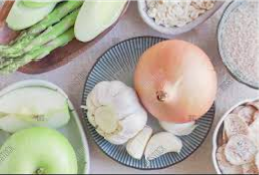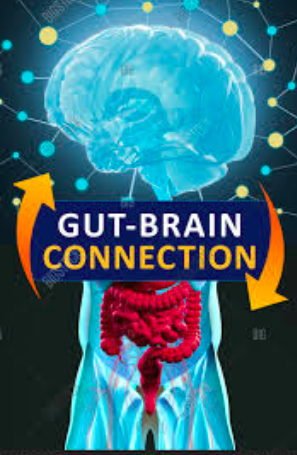I hope all is well with you and yours. We continue to live through uncertain times. As I have written about in past Newsletters, it takes resilience and stress hardiness to thrive during these times.
This edition of the Newsletter is focused on Part 2 of Gut Health. Please see Part 1 about “How to Heal Your Gut from Election Stress” which focused on Gastroesophageal Reflux (GERD), at www.drjillbaron.com/blog.
As the famous Greek Physician Hippocrates said, “All disease begins in the gut.” ¹
This was a prescient statement. Current research is demonstrating that the gut affects all of our systems from the brain and nervous system to the endocrine and the immune system. ²
Research is now con
firming that a “Gut Feeling” has a biological basis in one’s Gut-Brain communication! ¹
Here are some Key Concepts about the GUT:
What is the Gut? The term “gut” refers to the digestive system from the mouth to the anus. The small intestine is where 90% of the nutrients from food are absorbed.³ The remaining “undigested and unabsorbed food” enters the large intestine or colon, where the remaining minerals and water are absorbed. ⁴ The colon is also home to the “microbiome”—the collection of bacteria, viruses, fungi, and protozoa that populate the colon.
Gut as “The Second Brain: There is another part of the Gut called the “Enteric Nervous System.” This composes “the neurons and supporting cells” that line the “gastrointestinal tract, from the esophagus to the anus.” ⁵ This Enteric Nervous System makes hormones and neurotransmitters like serotonin, which is involved with mood, and GABA, which helps calm the brain. ⁵
Bidirectionality: The Gut-Brain Connection goes “both ways.” Research shows that the brain affects the gut, and the gut affects the brain.
So what you think can affect your gut health, and the hormones and microbiome produced in your gut can affect your mood, mind, and body.
An imbalanced microbiome has been associated with anxiety, depression, obesity, Schizophrenia, Parkinson’s Disease, Alzheimer’s disease, and many chronic diseases.
Stress and the Gut: You might have experienced the effects of stress on your gut. Maybe you had a job interview and were nervous and anxious and then you got diarrhea.
“Leaky Gut”: This is a condition where the the cells lining the colon get more porous both within the cell membrane and between the cells, so that whatever is in the colon—food particles, the microbiome, etc. can leak out into the blood. The body sees these constituents as foreign and mounts an inflammatory response against them. This response can turn on genes for diseases, such as diabetes, neurologic diseases, and autoimmune diseases and also cause diarrhea, constipation, and Irritable Bowel Syndrome (IBS) to name a few.
Leaky Gut occurs when the gut microbiome gets imbalanced from causes including psychological stress, antibiotic use, Nonsteroidal Anti-Inflammory Drugs like Ibuprofen, sugar, and processed food.
Gut Goals
1. Have a diverse amount of healthy bacterial species in your GUT.
2. Have what are called “beneficial Short Chain Fatty Acids” in your GUT.
3. Have a healthy GUT immune system.
By following the recommendations below, you will be on your way to having a Healthy Gut!

How To Optimize Your Gut to have a Healthy, Happy, Mind and Body!
1. Limit Sugar and Processed Foods–you may have heard the phrase, “Garbage in, Garbage Out.” If you eat food that is unhealthy, you will most likely have a body that is not healthy.
2. Eat Nutrient Dense, High Fiber, Whole Foods–ideally an organic, mostly plant based diet. What you eat influences how your microbiome functions, and ultimately how your mind and body function. When you eat nutrient dense, high fiber food, the bacteria metabolize it and produce healthy “Short Chain Fatty Acids,” which enhance gut health.
3. Eat fermented foods like Kefir, which is similar to yogurt and rich in probiotics; also sauerkraut, kimchi, and pickled ginger. ⁷ ( See note below about Probiotics).
4. If possible, avoid antibiotics unless really needed. Antibiotics wipe out the “good” gut bacteria, which can result in a Yeast overgrowth. Antibiotics can also cause a severe and potentially life threatening diarrheal condition called “C.Difficile.”
5. If you take antibiotics, then take a probiotic to ideally help prevent a yeast infection and also C. Diff. One that I have my patients take while they are on antibiotics is called Saccharomyces Boulardii.
6. Follow the Don’t Mess with Stress(TM) system by managing stress, eating as above, moving your body, and getting quality sleep.⁸ These factors have all been shown to improve your GUT Health. ⁷

A Note about Prebiotics and Probiotics
There are only a small amount of human research studies devoted to studying Prebiotics and Probiotics. Most of the evidence comes from animal studies.
A prebiotic is a chain of non-digestible carbohydrate molecules that increases mainly the beneficial organisms, Lactobacillus and Bifidobacteria in the colon to help crowd out bad bacteria. Examples of prebiotics are Inulin and Fructo-oligosaccharides (FOS). Most prebiotics are considered to be fiber. However, fibers such as cellulose and pectin stimulate the growth of many types of microorganisms, not just Lactobacillus and Bifidobacteria.
Prebiotics are found in certain vegetables. These include asparagus, onion, leek, garlic, artichoke, Jerusalem artichoke, and chicory root. ¹⁰
The definition of a probiotic according to the Food and Agricultural Organization of the World Health Organization ‘live microorganisms which when administered in adequate amounts confer a health benefit on the host.'” ⁹ In healthy individuals, according to this recent review article, probiotics do not confer any significant benefits. ⁹
Research with probiotics is promising in various gastrointestinal disorders such as Irritable Bowel Syndrome, Crohn’s disease, and Ulcerative Colitis, as well as in autoimmune and inflammatory disorders such as Rheumatoid Arthritis and Multiple Sclerosis. ¹¹
As mentioned above, you can get natural probiotics from foods that include yogurt, kefir, tempeh, kimchi, miso, sauerkraut, and kombucha. ¹²
Dr. Jill’s Interviews and Upcoming Events!
Listen to Dr. Baron’s Engaging Interview “Tips on Managing Stress” with Integrative Pioneer, Dr. Ronald Hoffman’s Intelligent Medicine Podcast.
Here is the link to this 20 min podcast: https://drhoffman.com/podcast/tips-on-managing-stress-part-1/
Two Upcoming Events:
- March 11th, 2021–Dr. Baron at the Westside JCC—3/11/21—FREE Virtual Interview on Don’t Mess with Stress™–Click here to Register! https://mmjccm.org/programs/dont-mess-stresstm-online
- Dr. Baron to speak along with other women at the Women’s Wellth™ Workshop, Sunday, March 21st : Dr Baron’s topic: “Don’t Mess with Stress™–A Plan to Thrive in Uncertain Times”
Register Now
*Register by March 1st to get a $50 discount!
*Come join the fun and learn about Women’s Health and Fitness!
Check out Recent Interviews with Dr. Jill: Go to https://drjillbaron.com/in-the-news
References:
1. Cryan JF, O’Riordan KJ, Cowan CSM, Sandhu KV, Bastiaanssen TFS, Boehme M, Codagnone MG, Cussotto S, Fulling C, Golubeva AV, Guzzetta KE, Jaggar M, Long-Smith CM, Lyte JM, Martin JA, Molinero-Perez A, Moloney G, Morelli E, Morillas E, O’Connor R, Cruz-Pereira JS, Peterson VL, Rea K, Ritz NL, Sherwin E, Spichak S, Teichman EM, van de Wouw M, Ventura-Silva AP, Wallace-Fitzsimons SE, Hyland N, Clarke G, Dinan TG. The Microbiota-Gut-Brain Axis. Physiol Rev. 2019 Oct 1;99(4):1877-2013. doi: 10.1152/physrev.00018.2018. PMID: 31460832.
2. Barrett KE, Wu GD. Influence of the microbiota on host physiology – moving beyond the gut. J Physiol. 2017;595(2):433-435. doi:10.1113/JP273451
3. Collins JT, Nguyen A, Badireddy M. Anatomy, Abdomen and Pelvis, Small Intestine. [Updated 2020 Aug 10]. In: StatPearls [Internet]. Treasure Island (FL): StatPearls Publishing; 2020 Jan-. Available from: https://www.ncbi.nlm.nih.gov/books/NBK459366/
4. Ogobuiro I, Gonzales J, Tuma F. Physiology, Gastrointestinal. [Updated 2020 Apr 16]. In: StatPearls [Internet]. Treasure Island (FL): StatPearls Publishing; 2020 Jan-. Available from: https://www.ncbi.nlm.nih.gov/books/NBK537103/
5. https://www.sciencedirect.com/topics/neuroscience/enteric-nervous-system
6. Gurung M, Li Z, You H, et al. Role of gut microbiota in type 2 diabetes pathophysiology. EBioMedicine. 2020;51:102590. doi:10.1016/j.ebiom.2019.11.051
8. Jill R. Baron, MD. Don’t Mess with Stress™–A Simple Guide to Managing Stress, Optimizing Health, and Making the World a Better Place. Jill R. Baron, MD, PC 2020.
9. Quigley EMM. Prebiotics and Probiotics in Digestive Health. Clin Gastroenterol Hepatol. 2019 Jan;17(2):333-344.
11. Liu Y, Alookaran JJ, Rhoads JM. Probiotics in Autoimmune and Inflammatory Disorders. Nutrients. 2018;10(10):1537. Published 2018 Oct 18. doi:10.3390/nu10101537
12. https://www.health.harvard.edu/staying-healthy/how-to-get-more-probiotics
13. Mayer EA. Gut feelings: the emerging biology of gut-brain communication. Nat Rev Neurosci. 2011;12(8):453-466. Published 2011 Jul 13. doi:10.1038/nrn3071
Past Newsletters:
Please feel free to read my past Newsletters on my blog https://drjillbaron.com/blog/ which has helpful tips for you to feel good and optimize your health.
Feel Free to Forward to a Friend:
If a friend has forwarded you this email, I invite you to receive my Newsletter by clicking on the button below. After filling out the form, you will receive a Stress Management Guide gift in your inbox!
